第37章
There is, perhaps, no woman, whether she have borne children, or be merely potentially a child-bearer, who could look down upon a battlefield covered with slain, but the thought would rise in her, "So many mothers' sons! So many bodies brought into the world to lie there! So many months of weariness and pain while bones and muscles were shaped within; so many hours of anguish and struggle that breath might be; so many baby mouths drawing life at woman's breasts;--all this, that men might lie with glazed eyeballs, and swollen bodies, and fixed, blue, unclosed mouths, and great limbs tossed--this, that an acre of ground might be manured with human flesh, that next year's grass or poppies or karoo bushes may spring up greener and redder, where they have lain, or that the sand of a plain may have a glint of white bones!" And we cry, "Without an inexorable cause, this should not be!" No woman who is a woman says of a human body, "It is nothing!"On that day, when the woman takes her place beside the man in the governance and arrangement of external affairs of her race will also be that day that heralds the death of war as a means of arranging human differences.No tinsel of trumpets and flags will ultimately seduce women into the insanity of recklessly destroying life, or gild the wilful taking of life with any other name than that of murder, whether it be the slaughter of the million or of one by one.And this will be, not because with the sexual function of maternity necessarily goes in the human creature a deeper moral insight, or a loftier type of social instinct than that which accompanies the paternal.Men have in all ages led as nobly as women in many paths of heroic virtue, and toward the higher social sympathies; in certain ages, being freer and more widely cultured, they have led further and better.The fact that woman has no inherent all-round moral superiority over her male companion, or naturally on all points any higher social instinct, is perhaps most clearly exemplified by one curious very small fact: the two terms signifying intimate human relationships which in almost all human languages bear the most sinister and antisocial significance are both terms which have as their root the term "mother," and denote feminine relationships--the words "mother-in-law" and step-mother."In general humanity, in the sense of social solidarity, and in magnanimity, the male has continually proved himself at least the equal of the female.
Nor will women shrink from war because they lack courage.Earth's women of every generation have faced suffering and death with an equanimity that no soldier on a battlefield has ever surpassed and few have equalled; and where war has been to preserve life, or land, or freedom, unparasitised and labouring women have in all ages known how to bear an active part, and die.
Nor will woman's influence militate against war because in the future woman will not be able physically to bear her part in it.The smaller size of her muscle, which would severely have disadvantaged her when war was conducted with a battle-axe or sword and hand to hand, would now little or at all affect her.If intent on training for war, she might acquire the skill for guiding a Maxim or shooting down a foe with a Lee-Metford at four thousand yards as ably as any male; and undoubtedly, it has not been only the peasant girl of France, who has carried latent and hid within her person the gifts that make the supreme general.If our European nations should continue in their present semi-civilised condition, which makes war possible, for a few generations longer, it is highly probable that as financiers, as managers of the commissariat department, as inspectors of provisions and clothing for the army, women will play a very leading part;and that the nation which is the first to employ its women so may be placed at a vast advantage over its fellows in time of war.It is not because of woman's cowardice, incapacity, nor, above all, because of her general superior virtue, that she will end war when her voice is fully, finally, and clearly heard in the governance of states--it is because, on this one point, and on this point almost alone, the knowledge of woman, simply as woman, is superior to that of man; she knows the history of human flesh;she knows its cost; he does not.(It is noteworthy that even Catharine of Russia, a ruler and statesman of a virile and uncompromising type, and not usually troubled with moral scruples, yet refused with indignation the offer of Frederick of Prussia to pay her heavily for a small number of Russian recruits in an age when the hiring out of soldiers was common among the sovereigns of Europe.)In a besieged city, it might well happen that men in the streets might seize upon statues and marble carvings from public buildings and galleries and hurl them in to stop the breaches made in their ramparts by the enemy, unconsideringly and merely because they came first to hand, not valuing them more than had they been paving-stones.But one man could not do this--the sculptor! He, who, though there might be no work of his own chisel among them, yet knew what each of these works of art had cost, knew by experience the long years of struggle and study and the infinitude of toil which had gone to the shaping of even one limb, to the carving of even one perfected outline, he could never so use them without thought or care.